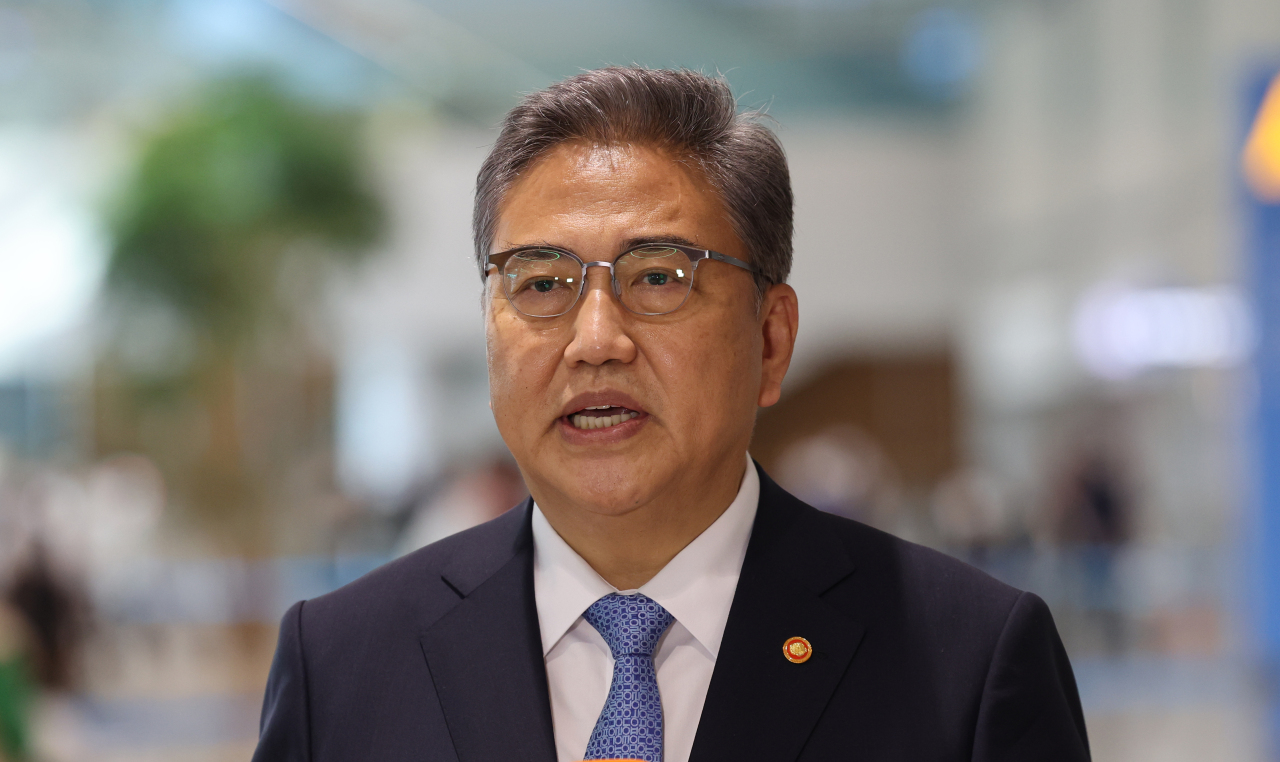As the leaders of South Korea, the United States and Japan reaffirmed their commitment to work together to deter North Korea’s nuclear threats, Seoul’s foreign minister raised the possibility of the three countries expanding their military cooperation.
South Korean Foreign Minister Park Jin also said China “has benefited the most from free trade,” and urged the country to join the “new world order” forming in the Asia-Pacific region, in a televised interview with Channel A on Saturday.
“The leaders of South Korea, the US and Japan met (at the Madrid NATO summit) and agreed that they need to cooperate on the security front, also on the military front,” Park said.
“North Korea continues to carry out military provocations and even preparing for a nuclear test. So when the North test-fires a missile, we (Seoul, Tokyo and Washington) could work together to raise alert, track and identify the missile in advance.”
Park’s remark adds on to what South Korean President Yoon Suk-yeol said after the summit with his Japanese and US counterparts on the sidelines of the NATO leaders’ summit last week.
Yoon said he had agreed with the other two leaders on the need for the three to resume military cooperation.
As Park raises the possibility of exchanging military information, it is likely that Seoul would ramp up efforts to normalize the operation of the General Security of Military Information Agreement, an intelligence-sharing agreement with Japan.
Ties between Seoul and Tokyo have long been strained from disputes over a series of historical issues, including Japan’s coercion of Koreans into forced labor and sexual slavery during its 1910-45 colonial rule.
The operation of the GSOMIA became sluggish in 2019 after disagreement between Seoul and Tokyo flared following Seoul’s top court ruling that Japanese companies liquidate their Korea-based assets and provide compensation for the Koreans they forced into labor during wartime.
In an act of protest against the court’s ruling, the Japanese government imposed export curbs on strategic materials.
For normalization, Park underscored that the trade curbs should be lifted and diplomatic relations with Japan restored.
The Yoon Suk-yeol administration, inaugurated in May, has been showing efforts to revive the soured relations with Japan, in part to ramp up trilateral cooperation, including the US.
Returning to Seoul from last week’s NATO summit, Yoon said, “We should not think in this way that we cannot discuss the current and future affairs when there are historical disputes.”
The president added, “They all can be addressed at the same time, and we hold the belief that both countries would be able to resolve the past issues for the future.”
In Saturday’s interview, Park also said China should join moves in forming a new order in the Asia-Pacific region, as he tried to explain that Seoul’s intent in participating in the US-led NATO summit is not an “anti-China” move.
“China is a country that has benefited the most from free trade. It would help China to join the world order,” Park said
“China also wants to join in the new order forming in Asia, India and the Pacific regions, and it can take part as much as it wants to.”
The Korean foreign minister is expected to meet with his Japanese and Chinese counterparts, Yoshimasa Hayashi and Wang Yi, respectively, at the G-20 summit slated this week in Bali, Indonesia. He is also planning to travel to Japan in mid-July, according to the Foreign Ministry.
By Jo He-rim (
herim@heraldcorp.com)








